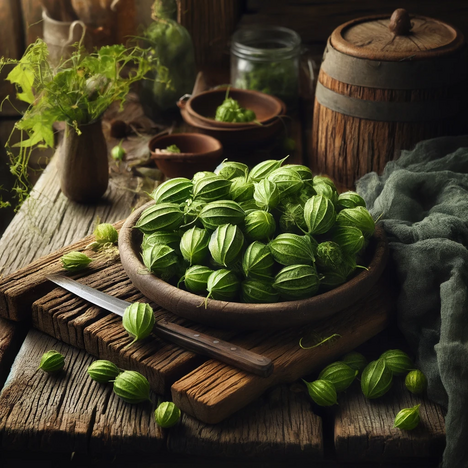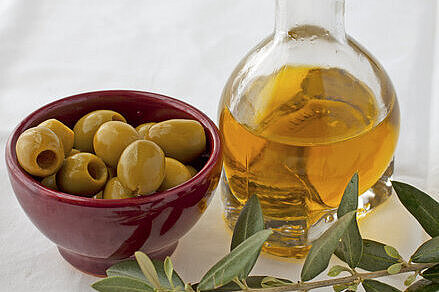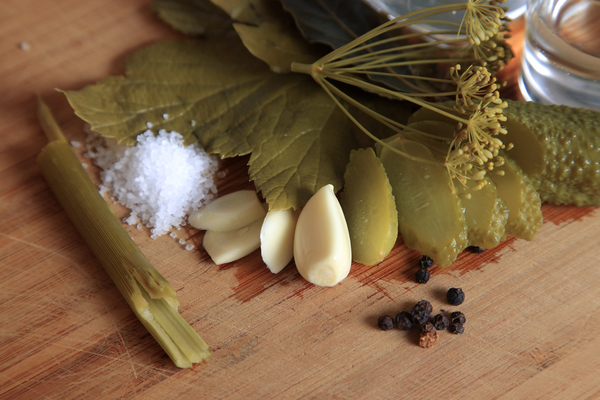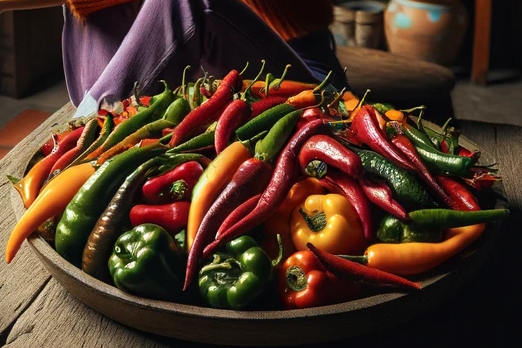Capers

What are capers?
Capers are the unopened, green flower buds of the caper bush (Capparis spinosa), a shrub native to the Mediterranean region. Before being used in the kitchen, they are pickled or salted, which gives them their characteristic pungent and slightly bitter taste. But it's not just the taste that makes capers stand out; they are also rich in nutrients, including vitamins such as vitamin C, vitamin A, as well as minerals such as iron and calcium.
Benefits of capers in dog nutrition
Antioxidant properties
Capers are rich in flavonoids and other antioxidant compounds that can help protect your dog's cells from free radicals. This antioxidant effect supports the immune system and can help prevent chronic diseases.
Natural anti-inflammatory
Thanks to their anti-inflammatory properties, capers can help to reduce inflammation in your dog's body. This is particularly beneficial for dogs with conditions such as arthritis or other inflammatory conditions.
Promote digestive health
Capers contain natural fibers that can support intestinal health and promote regulated digestion. These fibers also support the growth of healthy gut bacteria, which is essential for a balanced gut flora.
Disadvantages and precautions
High salt content
Pickled capers often contain a high salt content, which can be harmful to dogs. Excess salt in a dog's diet can lead to dehydration, electrolyte imbalance and, in severe cases, sodium ion poisoning.
Potential allergies
As with any new ingredient, there is a risk of an allergic reaction. Watch your dog carefully for signs of allergy, such as skin rashes, itching or indigestion, when introducing capers to their diet.
Gastrointestinal complaints
Due to their high acidity, capers can cause gastrointestinal upset in some dogs, especially if consumed in large quantities. Symptoms can include vomiting, diarrhea and discomfort.
A balancing act in the diet
Capers offer an interesting blend of flavor and nutritional value that can have potential benefits for your dog's health. However, as with any new food additive, it's important to exercise caution. Start with small amounts, pay attention to your dog's reaction. Incorporating capers into your dog's diet should be considered as part of a balanced diet tailored to your pet's individual needs. With the right approach, capers can be a healthy addition that contributes to the variety and well-being of your four-legged friend.
If you notice any signs of hypersensitivity or poisoning in your dog, you should see your vet immediately. We are not a substitute for a vet, but we try to be as accurate as possible. Every dog reacts differently and we recommend you get a second opinion or consult your vet if in doubt.
Stay healthy and take good care of your four-legged friend!😊
Similar to Capers
Olives are the fruit of the olive tree, which grows mainly in the Mediterranean region. They have an elliptical to spherical shape and a hard stone in the soft flesh. Olives come in different...
Gherkins contain many vitamins and minerals such as vitamin K, vitamin C, potassium and iron. They can also help to regulate fluid balance and aid digestion. They can also provide variety in your...
Pearl onions are a type of onion that belongs to the allium family. They are also known as silver onions, pearl onions or cocktail onions. They are usually white or light yellow and have a diameter...
Hot peppers are hot chili peppers that belong to the Capsicum genus. Their heat level varies depending on the variety, and they can be added raw, dried or as a powder to a variety of dishes. The...



